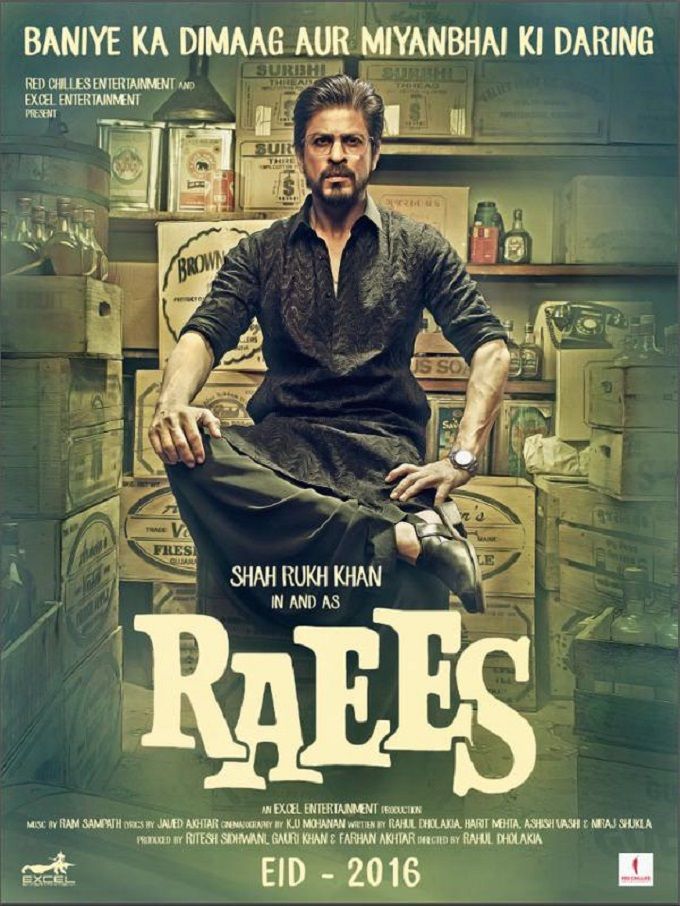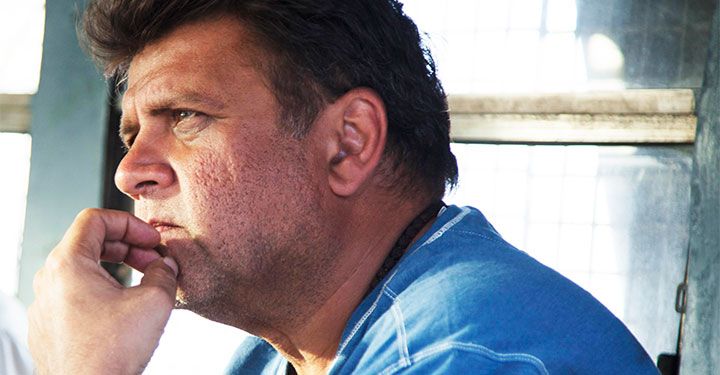We caught up with Rahul Dholakia, the man behind the latest Box Office hit- Raees for a tête-a-tête where he spoke about his National award winning film, Parzania, his inclination towards serious story telling and lots more.
Read on!
From Parzania to Raees in a little more than a decade, how has this journey been?
Actually, it’s been a decade I think, because Parzania released on January 26th 2007, and Raees on January 25th 2017. Of course, Parzania started in 2002, but it’s been an incredible journey. I did Parzania, Lamhaa, and now Raees, and all three are different films, all three are different subjects. It’s been awesome, we’ve had some highs and some lows, but the journey has been incredible.Your filmography has always touched upon serious and intense topics, is this a conscious choice?
Well yes, in part. Parzania was made because I lost my friend’s son in 2002. On January 14th 2002, we were flying kites with him in Gujarat, and a month and a half later he was gone. That really affected me because I thought, “I went to film school for what? If I’m not going to say what I want to say, then why should I make films?” So, that was one of the reasons for making Parzania. It was a very personal thing. The loss and life of a person, and how the family has to deal with it.
Lamhaa was about a Kashmir issue. It happened during the time I was promoting Parzania. I met some Kashmiri students and they said that Kashmir is a “beautiful prison”. That really got to me, I said, “let me research on Kashmir”, and that’s when Lamhaa happened.
Raees, on the other hand, is a much more commercial film, much more of an entertainer. But, it also has a message that we want to send out – that you are responsible for your own actions. The decisions have been conscious, the journey has been great. It’s been tough at times, very tough in fact, but it’s been fun because you love the process.Your last film Lamhaa was in 2010. Was this long break from mainstream, commercial cinema intentional?
Actually, no. I take a lot of time to write and research. So, that’s what took time. And once we finished the script, Shah Rukh had to come on board. Once he came on board, it was his dates that we had to work around. There was a bit of a gap in between because of the monsoons and also his injury, so that took a little longer, plus the dates for the release. When you make such a big film, and when you make such a complicated, difficult film, it does take time. In a way it’s good, because you get the time to do what you want to do – the fine tuning, the editing, the mixing, the music – you get the opportunity to do that. So yes, it took a long time, but I promise the next film will be much quicker.

Was Shah Rukh a natural first choice for Raees or did you explore other options too?
Shah Rukh was always the first choice for Raees. Actually, when I’d written the first, initial draft of about forty to fifty pages, I’d read it to my Indi – film maker friends, and they had laughed and asked, “who do you want for this film? who do you see?”, because it was quite commercial when we wrote it, and I said, “Shah Rukh”. And, we all knew that I had no access to Shah Rukh.So, when Ritesh and Farhan read the script and I told them I wanted him for the film, they also laughed and asked, “Are you sure?”, and I said, “Yes, he’s brilliant. He’ll do this role very well. Let’s just explore it.” Shah Rukh met us, and thanks to Ritesh and Farhan, it became so easy to facilitate the meeting. He met us and he agreed to do the part, so it was wonderful. On the other hand, I’d always thought of Nawaz as the cop, and I’d met him before I met Ritesh and Farhan, and he had agreed to do that part. Both my first choices were in place. I’m very happy that Shah Rukh took this part, and agreed to do the film because it’s quite a brave role for him to do, or for anyone for that matter. It’s a difficult role, it’s a tricky role; as someone has written somewhere, it’s a risky role, and he’s performed it so brilliantly.I’m really grateful that such superstars take these type of roles. It really makes a lot of difference to the film’s reach, and it also inspires a lot of other film makers as well as actors and directors to actually explore different characters and possibilities, which otherwise you wouldn’t imagine one doing. It’s not a safe role, it’s a very tough role – it’s got no gimmicks in it. So, I think it’s brilliant that a person like Shah Rukh would do this role and do it so well. Everywhere they’re saying that it’s one of his career’s best performances. It’s a really honest performace.Were you ever skeptical about his “romantic hero image” considering he has successfully shown it for a good part of his career?
No, from the time we wrote this script, we thought this character was larger than life. Shah Rukh has played these parts, not exactly this part, but he has played the guy on the edge, and somewhere his personality is also very different. So, I wasn’t skeptical about it because I was very convinced with the character and with Shah Rukh. He’s got such a wonderful range – we’ve seen that over the years. So actually, the challenge was to put that range into one film. I’m glad that worldwide, people have accepted it, liked it, and have loved his performance.Finally, what’s your take on the Raees – Kaabil clash?
As a director, my job is to make a film. As a producer, it’s their job to release it. So honestly, I have no say in this. I just did what I had to do best – that is to make the film.

